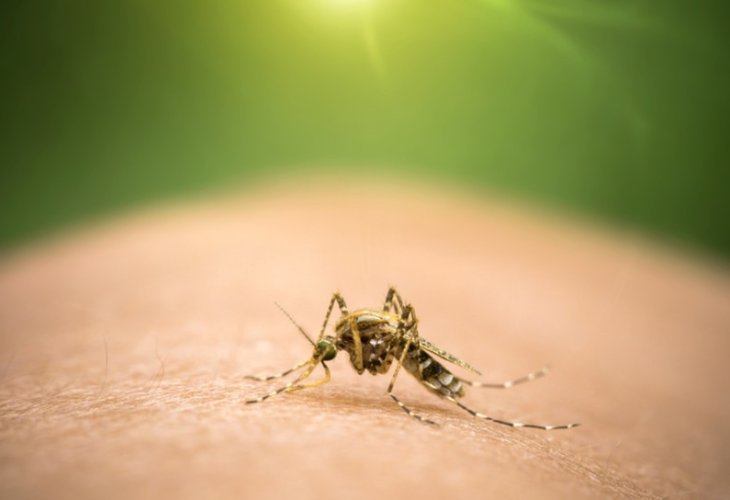Faith
Why God Created Mosquitoes — The Hidden Role of Nature’s Most Annoying Insect
The ecological, spiritual, and moral purposes of mosquitoes, and how even their bites can hold hidden meaning

Eran asks: “I’d like to understand what benefit all kinds of insects have, and especially mosquitoes — which not only don’t give us any benefit, but also suck our blood and bother us. Thank you.”
* * *
Hello Eran, and thank you for your question.
Ecology teaches that every living creature in the world, even the smallest, indirectly affects all the species in its habitat.
Food Source – Insects serve as food for reptiles, birds, and small mammals. Without insects, thousands of larger species would starve to death. Mosquitoes, in particular, are a major food source for animals larger than them, due to their rapid reproduction and ability to travel quickly from place to place. Clouds of mosquitoes feed countless animals.
Pollination – Insects live in harmony with plants and trees, pollinating flowers and enabling plant life to reproduce and spread. Without insects, plants and trees could not spread across the world.
Decomposition – Insects eat decaying matter and carcasses, preventing the spread of dangerous diseases.
Population Control – Mosquitoes help “thin out” large populations of animals by transmitting diseases, thereby maintaining the balance of nature and preventing mass extinction from starvation.
The Midrash tells a parable about a frog who said to King David: “I am engaged in a great mitzvah. There is a creature by the sea that lives only from the water, and when it is hungry, it takes me and eats me — this is my mitzvah” (Yalkut Shimoni, Psalms 889).
God’s mercy is revealed in the careful planning of creation, allowing predators like lions to coexist with plant-eaters like zebras and elephants, from the smallest creatures to the largest, in a delicate balance known as the “ecosystem.” This intricate design allows all animals to survive together without wiping each other out.
I once saw a National Geographic documentary about elephants in Africa. Time and again, lions preyed on weak or young elephants. It was hard to watch, but at the end the narrator revealed that elephants live up to 60 years and consume all available food sources in their path. Without predators to thin their numbers, elephants would wipe out their own food supply, bringing mass death to themselves and many other species. Africa would become a barren desert. Even seemingly cruel predators serve a crucial role in sustaining millions of other species.
As for mosquito bites — the entire creation reflects human behavior. When humanity sins, animals also “descend” in spiritual level and can harm humans. After Adam’s sin, the world fell from its original state. In the future redemption, the natural world will be repaired, and even what now seems like cruelty in nature will be transformed. Creatures that bite us are considered a form of punishment stemming from the first sin, but even that “punishment” has a hidden benefit in that it spares us greater punishments, serving as atonement for sins. The Talmud says (Arachin 16b) that even the smallest inconveniences in life are considered a form of suffering that can atone for sin.
Imagine, for example, if every mosquito bite wiped away one act of gossip from your record, sparing you harsher judgment in the World to Come. You may even want to thank the mosquito.
The Talmudic Sages also teach moral lessons from the mosquito. They note that humans were created last, even after the mosquito, to remind us not to grow arrogant, for even the mosquito came before us in creation (Sanhedrin 38b).
Mosquitoes act purely by instinct — they don’t bite out of malice, but because it is their nature. Humans, however, choose whether to do good or harm. Many times in life, people act worse than mosquitoes, harming others without any obligation to do so.
The Tanya explains that even the lowly mosquito, which “takes but does not give”, still fulfills its God-given role better than a human who sins, because it follows its natural purpose.
The Creator designed the world as a mirror of human behavior. When humans act with cruelty, envy, greed, gossip, and slander, the natural world reflects that, bringing more disasters and harmful creatures. When the final redemption arrives and we return fully to God, the world will change with us, and perhaps there will be no need for mosquito bites at all.

